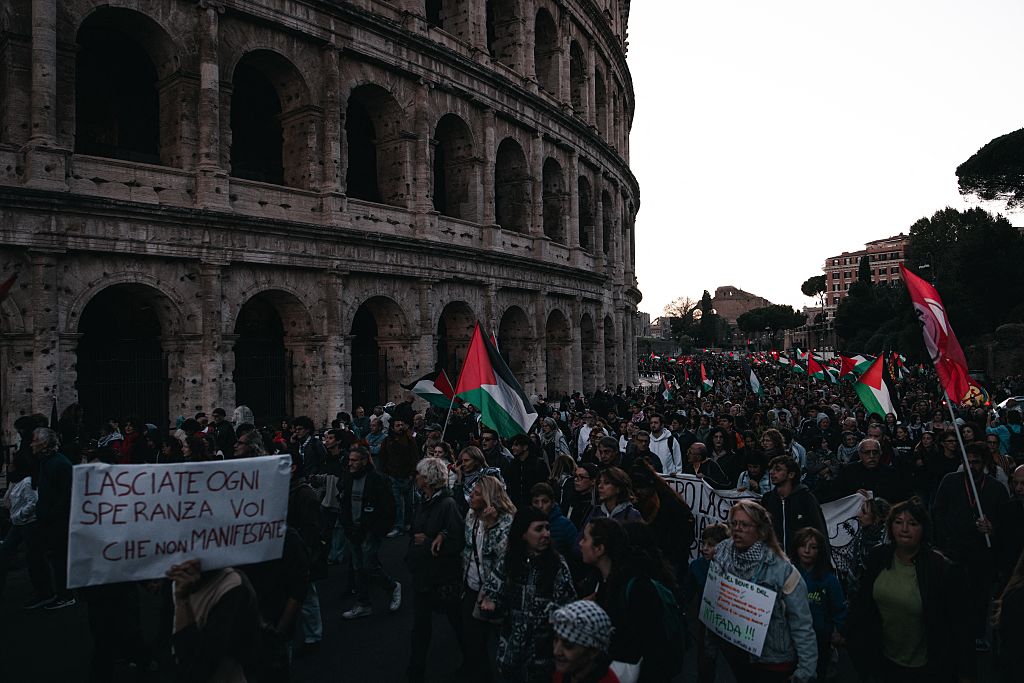The death of Oleg Gordievsky at the age of 86 comes at a moment when relations between his native Russia and his adopted country Britain are just as fraught as they were in his heyday as the West’s most important double agent at the height of the Cold War.
Gordievsky’s life story reads like the plot of a John Le Carre spy thriller, and it has indeed been written up as such by the doyen of espionage chroniclers Ben Macintyre.
Gordievsky was born into the ranks of the Soviet secret state apparat. Like Vladimir Putin, his father was a member of the NKVD, the name the feared Soviet secret police bore under Stalin. Known as ‘Chekists’ from the original title of the Bolshevik terror elite, many members of the apparat come from Cheka dynasties and inherit the job from other family members.
At Moscow University, young Oleg learned half a dozen foreign languages, mainly Scandinavian, and his proficiency and zeal soon saw him rising in the ranks of the KGB. His first foreign posting was to East Berlin, where in 1961 he witnessed the building of the Berlin wall, which stirred his first doubts about the Soviet system.
Those doubts hardened into hatred of the regime that he served during two stints at the Russian embassy in Copenhagen in the late 1960s and early 1970s. Thoroughly disillusioned – especially by the Warsaw Pact’s invasion of Czechoslovakia to snuff out the liberal ‘Prague Spring’ in 1968 – in 1974 he was recruited by Britain’s Secret Intelligence Service MI6 as a double agent.
The risks Gordievsky ran in betraying his country were enormous. If he was caught he would be tortured, tried and executed. The fate of another Oleg, Colonel Oleg Penkovsky, who was either shot or fed live into a furnace for spying for the West during the Cuban Missile crisis in 1962, was well known to all Chekists.
In the early 1980s Gordievsky was posted to the Russian embassy in London where he was cleverly used by MI6 to ensure his promotion.
They fed him quantities of ‘fluff’ : genuine but low grade information to win him credit with his Soviet superiors, while in return Gordievsky spilled the beans about Moscow’s most precious and jealously guarded secrets. The tactics paid off when he was promoted to be ‘rezident’ head of the KGB’s London station.
In 1983, Gordievsky warned MI6 that a Nato exercise named ‘Able Archer’ was seen by the Kremlin as presaging a western nuclear strike. The defusing of this crisis is thought by many to have averted world war three. Gordievsky also correctly identified Mikhail Gorbachev as a rising star likely to become Russia’s leader.
But Oleg the betrayer was himself about to be betrayed. His value to Britain was so great that his MI6 handlers had kept his identity secret even from their American allies with whom intelligence is normally shared. Nonetheless the CIA had identified Gordievsky using their own sources, and a CIA traitor named Aldrich Ames gave away his name to his masters in Moscow.
In 1985 Gordievsky was recalled to Russia to face interrogation. MI6 offered him the chance to defect and start a new life in Britain, but he decided to take the risk and return to tough it out. Back in Moscow, he was arrested and told by the KGB that he would never be allowed to leave the country again.
Astonishingly, he was then freed, but kept under strict surveillance in the hope that he would give himself away by contacting MI6.
Realising that his cover had been blown, Gordievsky decided that the time had come to activate a prearranged exfiltration plan, codenamed‘Operation Pimlico’ to get him out of Russia. To trigger the plan Gordievsky appeared on a street corner carrying a Safeways supermarket bag and – in the best Le Carre tradition – was clocked by a British ‘spook’ with a Harrods bag.
Gordievsky next took a train to Leningrad and shaking off his KGB shadows, with the aid of British diplomats was smuggled across the border to Finland and freedom in the boot of a Ford Sierra.
Disguised with an unconvincing beard, Gordievsky made occasional public appearances to give interviews and comment
This began the final phase of Gordievsky’s life as a spy. Living in safe houses in London and Godalming, he was debriefed by MI6 and became a recognised – and hardline anti Communist – authority on Russia , the country he had so comprehensively betrayed. Controversially, in his memoirs he identified the former Labour leader Michael Foot as a Soviet asset, who had supplied information to Moscow under the codename ‘Agent Boot’.
Back in the USSR, the KGB’s rage at their star’s desertion knew no bounds. He was sentenced to death in his absence – a sentence that was never rescinded, even after the fall of communism – and his wife was arrested and suffered deep interrogation. ( Unsurprisingly the marriage did not survive).
Disguised with an unconvincing beard, Gordievsky made occasional public appearances to give interviews and comment on East-West affairs. More conventionally clad in a top hat and tails, he was decorated by the Queen with the Order of St Michael and St George in 2007 in recognition of his secret service on Britain’s behalf.
But he was never safe from Russia’s vengeance. In a still mysterious episode in 2007 Gordievsky was reportedly rushed to a Surrey hospital unconscious. He claimed that he had been poisoned with thallium in a prophetic preview of the poisoning of his fellow defectors Alexander Litvinenko and Sergei and Yulia Skripal.
Gordievsky’s dramatic life and death is a telling reminder of the darkest days of the Cold War – and a sombre warning that those who flee the long arm of Russia’s revenge do so at their peril and a very real risk to their lives. All things considered, Oleg Gordievsky is lucky to have died in his bed of natural causes.







Comments